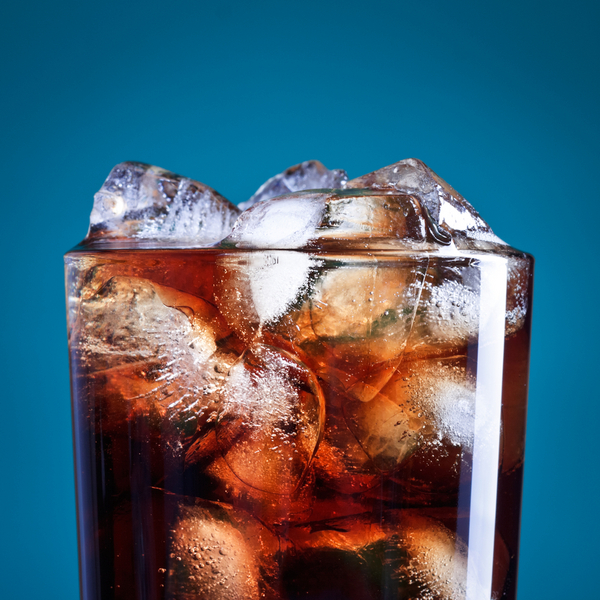Large-Soda Ban Blocked, Concerning Some Nutritionists

Get the world’s most fascinating discoveries delivered straight to your inbox.
You are now subscribed
Your newsletter sign-up was successful
Want to add more newsletters?

Delivered Daily
Daily Newsletter
Sign up for the latest discoveries, groundbreaking research and fascinating breakthroughs that impact you and the wider world direct to your inbox.

Once a week
Life's Little Mysteries
Feed your curiosity with an exclusive mystery every week, solved with science and delivered direct to your inbox before it's seen anywhere else.

Once a week
How It Works
Sign up to our free science & technology newsletter for your weekly fix of fascinating articles, quick quizzes, amazing images, and more

Delivered daily
Space.com Newsletter
Breaking space news, the latest updates on rocket launches, skywatching events and more!

Once a month
Watch This Space
Sign up to our monthly entertainment newsletter to keep up with all our coverage of the latest sci-fi and space movies, tv shows, games and books.

Once a week
Night Sky This Week
Discover this week's must-see night sky events, moon phases, and stunning astrophotos. Sign up for our skywatching newsletter and explore the universe with us!
Join the club
Get full access to premium articles, exclusive features and a growing list of member rewards.
New Yorkers who enjoy super-sized sodas can keep drinking them, for now.
Today (March 11), a state judge invalidated New York City's large-soda ban, which was set to take effect tomorrow. Judge Milton Tingling, of the New York Supreme Court, called the measure "arbitrary and capricious," according to The New York Times.
The measure would have prevented the sale of sodas and other sweetened beverages larger than 16 ounces. Mayor Michael Bloomberg saw the measure as an opportunity to make the city healthier, citing sugary drinks and large portion sizes as culprits in the obesity epidemic.
However, critics pointed out that some large drinks, such as those containing more than 50 percent milk, were not prohibited. What's more, the rules did not apply to all establishments; convenience stores such as 7-Eleven, home of the Big Gulp, were exempt.
"The loopholes in this rule effectively defeat the stated purpose of the rule," Tingling said, according to The Wall Street Journal.
The Bloomberg administration said it plans to appeal the sugary drinks decision as soon as possible. "We believe that ultimately, the courts will find it consistent with the law," Bloomberg said in a press conference today. "Being the first to do something is never easy," Bloomberg said, referring to the fact that the city's ban on large sugary drinks is the first of its kind in the nation.
Marion Nestle, a professor in the department of nutrition, food studies and public health at New York University, called the decision disappointing. "I hope the city tries again," Nestle told MyHealthNewsDaily. In a New York Daily News editorial yesterday, Nestle called the concept of a large-soda ban a "terrific idea," but said more should be done to close the loopholes.
Get the world’s most fascinating discoveries delivered straight to your inbox.
"Most people eat whatever size is in front of them, the 'default' in public health-speak, and are content with that amount. So a reasonable goal of public health intervention is to change the default drink to a smaller size," Nestle wrote.
Others argued that the ban in its current form might actually increase calorie consumption. The ruling would prohibit coffees over 16 ounces if they had more than a certain amount of sugar added (about two packets), leading some vendors to announce that they would make customers add their own sugar to large coffees. This change might prompt some coffee lovers to opt for coffees containing milk, such as lattes, which have more calories than plain coffee, said David R. Just, co-director of the Cornell Center for Behavioral Economics in Child Nutrition Programs.
"The policy is so convoluted, it is unclear if it [would] actually encourage an increase in calorie consumption," Just said in a statement.
A study published last summer suggested that the ban could lower calorie consumption, but only if at least 40 percent of people made changes in their habits (switching from a larger size to a 16-ounce size.)
Pass it on: New York City's large soda ban has been blocked.
Follow Rachael Rettner @RachaelRettner. Follow us @MyHealth_MHND, Facebook or Google+.

Rachael is a Live Science contributor, and was a former channel editor and senior writer for Live Science between 2010 and 2022. She has a master's degree in journalism from New York University's Science, Health and Environmental Reporting Program. She also holds a B.S. in molecular biology and an M.S. in biology from the University of California, San Diego. Her work has appeared in Scienceline, The Washington Post and Scientific American.
 Live Science Plus
Live Science Plus










